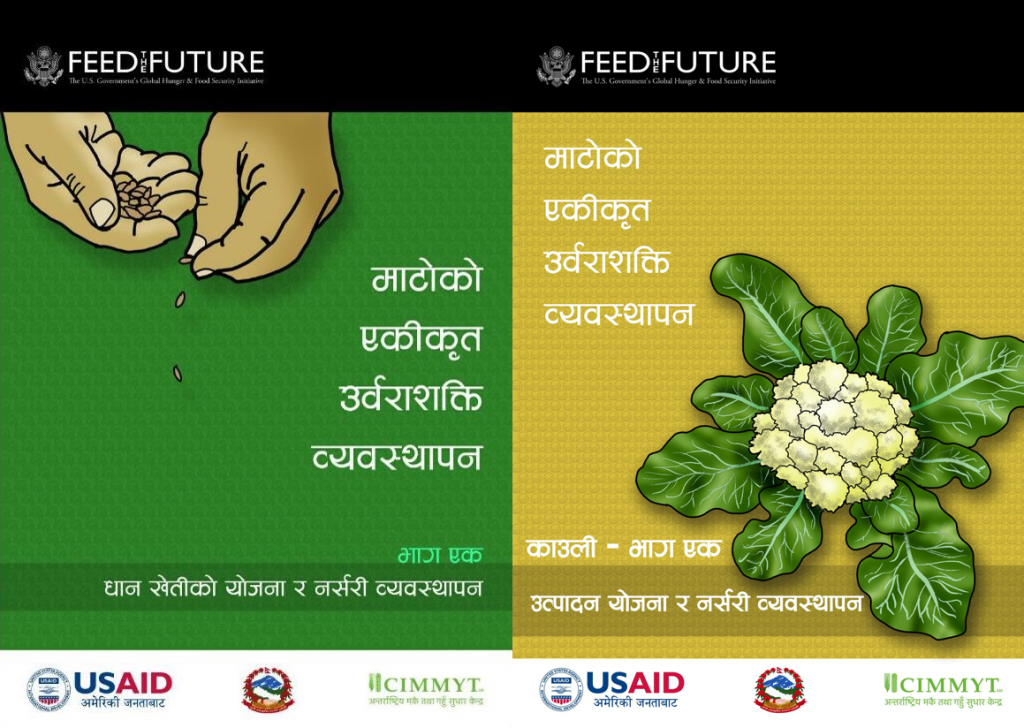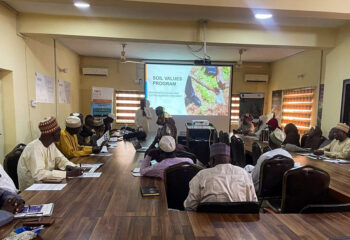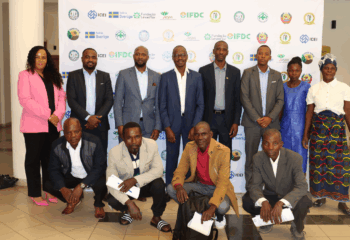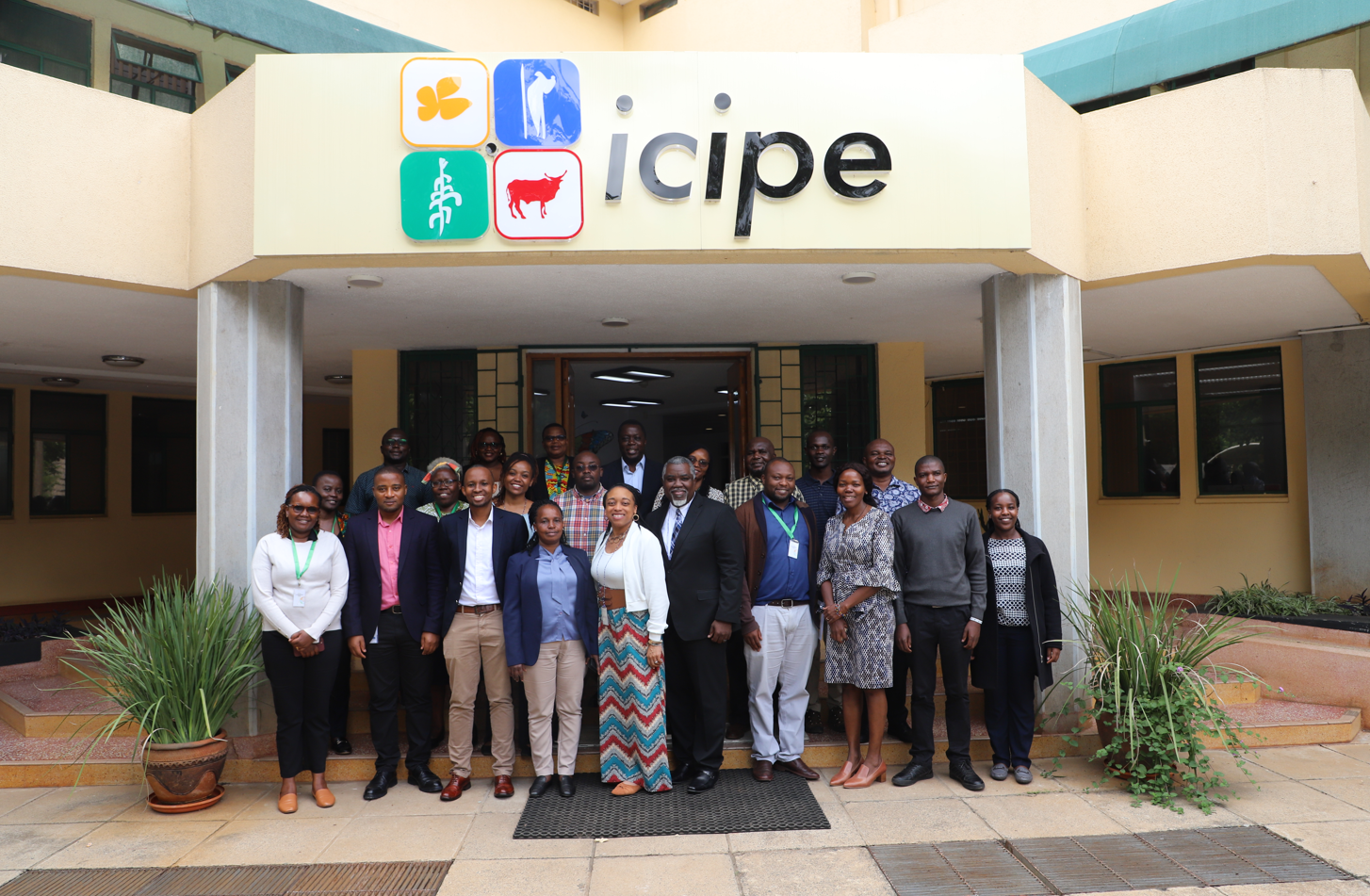
KATHMANDU, Nepal (CIMMYT) — Maintenance and enhancement of soil fertility are vital for food security and environmental sustainability. However, a baseline survey conducted through the Nepal Seed and Fertilizer (NSAF) project shows that 95 percent of farmers have poor agronomic literacy. Most of them have little or no knowledge of proper seed and soil management practices, and do not apply fertilizer appropriately. Many farmers are also unaware of micronutrients and their specific role in crop production, so they spray micronutrient solutions as advised by agrovets. While quality seed and mineral fertilizer use are necessary to improve crop yields, use alone is not sufficient to maximize efficiency — how to use these tools is equally, if not more, important.
All these challenges indicate a need to educate farmers and help them adopt good agronomic practices that will maximize crop production and productivity.
As part of the NSAF project, the International Maize and Wheat Improvement Center (CIMMYT) has developed locally appropriate agricultural extension materials to disseminate best management practices for maize, wheat and other crops. The government of Nepal has endorsed the project’s best management practices for rice, maize, wheat, tomato, cauliflower and onion.
These extension materials have information on integrated soil fertility management: a set of agricultural practices that integrates improved seed, mineral fertilizer use and soil organic matter management, all adapted to local conditions to improve agricultural productivity. They also serve to share information on the 4 Rs of fertilizer management stewardship: right source, right rate, right time and right placement.
CIMMYT and NSAF project partners are delivering these innovative extension materials to agrovets, cooperatives, extension agencies, development organizations and other intermediaries. They then use them to provide training to farmers in their working areas.
Training packages include pictorial aids, games, informative handouts, group activities, field guides, demonstrations, field visits and other physical learning tools. All the materials have been developed following an “active learning” framework. Training topics include the principles of integrated soil fertility management, soil pH and liming, crop-specific fertilizer application rates, planting methods, fertilizer splitting, methods of fertilizer placement, seed and fertilizer quality, handling considerations and postharvest practices.
“Training of extension workers and farmers on agricultural and plant nutrient related topics leads to an improvement in agronomic practices by farmers. Farmers that are trained and educated in best agronomic practices tend to realize high yields,” said Ramananda Gupta, Agronomist and Extension Specialist at the International Fertilizer Development Center (IFDC). CIMMYT is partnering with IFDC to implement the activities of the NSAF project related to fertilizer, including agricultural extension programs, policy support and market development.
All training materials have been field-tested with farmers, agro-dealers, government extension specialists and cooperatives. The training content has been reviewed by the Nepal Agricultural Research Center and Department of Agriculture. “The content of the best management practice materials are essential knowledge and skills farmers need to sustainably intensify production. Adoption of best management practices will significantly contribute in developing the rice sector as well as other related crops,” commented Ram Baran Yadaw, Rice Coordinator at the National Rice Research Program.
The NSAF project team is piloting the dissemination of improved technologies, skills and extension materials to farmers through local governments and private companies, using different tools and methods. The extension materials on best management practices will be publicly available, so improved seed and soil fertility technologies can be more accessible to farmers.
CIMMYT is also partnering with Viamo to adapt all the materials into an SMS and Interactive Voice Response (IVR) system to further scale up the program in the country, potentially reaching 12 million mobile phone subscribers.
The Nepal Seed and Fertilizer (NSAF) project promotes the use of improved seeds and integrated soil fertility management technologies along with effective and efficient extension programs across 21 “Zone of Influence” districts and in five earthquake-affected districts. The project is funded by the United States Agency for International Development (USAID), as part of the Feed the Future initiative. The project is led by International Maize and Wheat Improvement Center (CIMMYT), in collaboration with Nepal’s Ministry of Agricultural Development and partners including the International Fertilizer Development Center (IFDC) and the Center for Environment and Agricultural Research, Extension and Development (CEAPRED).



